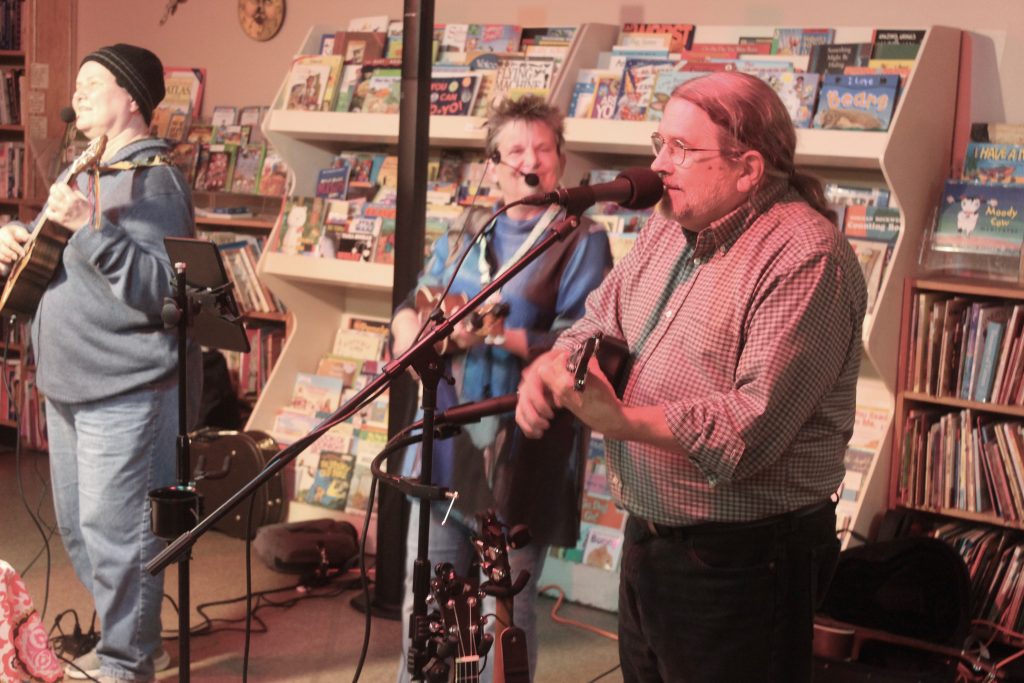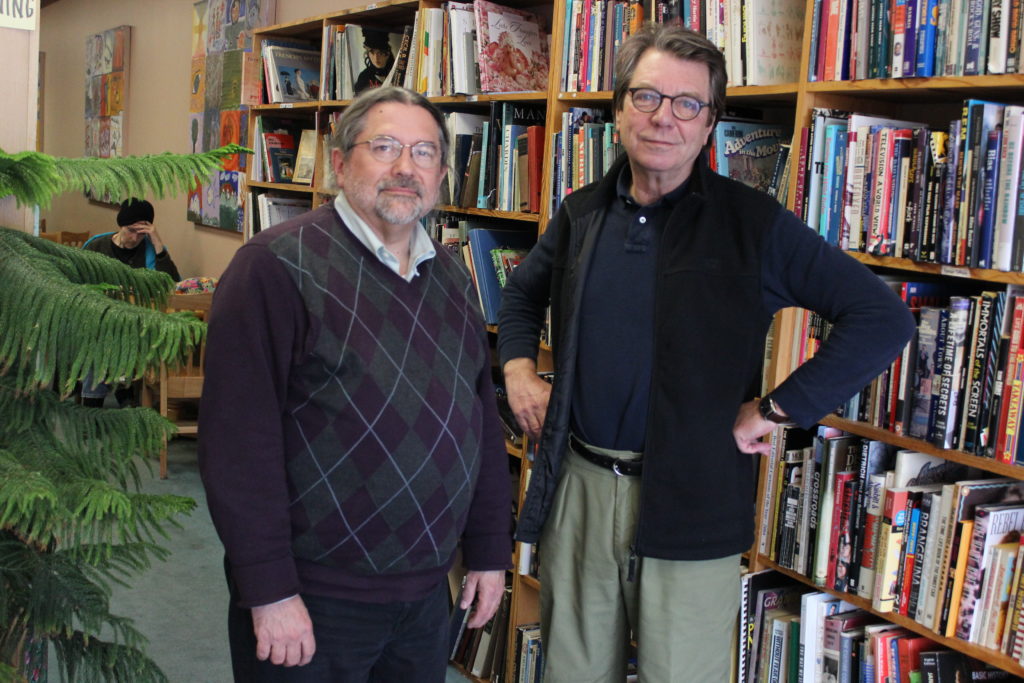By DAVID DUPONT
BG Independent News
Geoff Howes is a wordsmith of many talents.
The Bowling Green State University professor emeritus of German is a scholar, published essayist, contributor of micro-poetry on Twitter, closet fiction writer, and, as a member of the Grand Ukulelists of the Black Swamp, the writer of such whimsical ditties as “Analog Annie” and “Sugar Ridge.”
He also translates the work of other writers from German to English, a task that draws on all his writing skills.
This fall, Howes has been immersed in reading a lot of other people’s work. He’s one of the six jurors who will select the winner of the PEN America Literary Award for Translation.

This is first time serving on the panel. He was approached by prominent translator Tess Lewis, whom he’d met at translation workshops and events. “I immediately said ‘yes’ even though it would be enormous amount of work,” Howes said. He saw this as an opportunity to make connections with “the translation world which is firmly centered in New York City.” He noted four of the jurors are from New York City while the other is from the University of Massachusetts Amherst just a few hours away in western Massachusetts.
This year’s field yielded “a bumper crop” of 190 books submitted by publishers. Last year, Howes said there were fewer than 100.
So in mid-September each judge received 30-plus books to consider with an early November deadline to make their first selections. Howes said he planned to read about 100 pages of each, though at least in one case, reading five was enough to realize the book wouldn’t make the cut.
“The main thing for me is whether it’s a compelling text in English, and you don’t have the sense that it’s translated,” he said.
“I don’t know when I’ve been exposed to so many books in such a short time, and I decided that my best approach to them was just to relax and read them and enjoy them and everything else would come from that.”
No word has a precise correspondent in another language, and even when they do they often have very different social contexts, Howes said. A train station in Germany is a major hub of activity, not so in the United States where travel by train is more a lifestyle choice.
“You have a whole book adding up all those approximations. That’s why it’s so important to write literary text rather than being super accurate all the time. Sometimes you have to take liberties,” he said.
The 10 books that made the long list have books translated from Danish, Korean, Japanese, Italian, Russian, Polish, Spanish, and French.

“The most important thing is the rhythm,” Howes said. Several authors have praised his work because he captures that quality. The language is not flat and, well, prosaic. “The sentences are aesthetic structures. That’s important.”
The process of judging others’ grappling with the craft was difficult. Some of the books that didn’t make his top five have gone on to win other awards.
From the initial batch, each judge selected five books for further consideration. Earlier this month, the top 10 were unveiled. In January the five finalists will be announced, and then the top prize will be awarded at the PEN America Literary Awards banquet on March 2 in New York City. Howes plans to attend, tying it in with a trip to see his older brother Royce Howes, who is an artist and teacher in the city.
The deliberations, Howes said, were conducted via video conferencing.
Howes began translating in connection to his duties at BGSU. The university has been bringing in a writer from a German-speaking country, most often Austria, since 1986, coincidentally the same year Howes arrived on campus as a visiting professor.
In 1997, an extra grant allowed the department to bring in two. They wanted to have a bilingual reading, so Howes translated some of the visitors’ work.
“I always thought I’d like to do it, but that’s what made me realize I can do it, and I can do it well,” Howes said.
To date he’s published six translations, all works of fiction, from German to English, five by Austrian authors and one by a Swiss writer.
On very rare occasions, he said, he’s translated English to German, “Every time I did I resolved not to do it again.” He is working with an American poet to translate her work into German. He’s also published some work online, including poetry.
Howes, 64, retired in 2015 and one of the reasons was so he could spend more time translating.
Howes did not come from a German background. He grew up in Royal Oak, Michigan, and studied German in high school. He credits an excellent teacher with encouraging him. “For some reason, I was good at it,” he said, “ and when you’re good at it, you start to like it. The complexity of grammar just challenged me, didn’t daunt me.”
He was fascinated by the opportunity to immerse himself in a different world. As a high school student, he never thought of traveling to Germany, not until he competed in a German language competition. The top prize was a trip to Germany. He didn’t win, but that planted in his head the notion that he could venture overseas someday.
He’s lived in Austria as part of BGSU’s long-established study abroad program there.
He went on to major in German at Michigan State, where he was introduced to German literature.
He completed his master’s and doctoral studies at the University of Michigan. Aside from one year at the University of Minnesota Twin Cities, he spent his academic career at BGSU.
Now he works out of an office crammed with books in the old bank building that houses the Four Corners Center.
That includes the books he adjudicated for the PEN competition.
Through judging the PEN competition, Howes said, “I relearned to appreciate fiction and what it’s capable of and how much power it can have.”
Once his duties are over he plans to go back and read more of the nominees that were not in those originally assigned to him. There’s “one big fat one” translated from Hungarian and another from Russian. “I’ll be busy with that.”
He’ll also be scouting out a major project. He didn’t take one on this fall because of the PEN judging.
He’s looking into a project translating the poetry of Austrian writer Christine Lavant. “It’s really great poetry, strange and hard to translate.”
The challenges of translating are exponentially greater when working with poetry, especially rhymed poetry. The importance of rhythm is heightened. “It’s kind of a fool’s errand but than it would be really sad if we didn’t have poetry from other languages,” Howes said. “I guess I like a challenge.”
His own creative writing, and play with words, helps inform his translation.
This year, Howes plans to submit his own fiction and poetry for publication.
He’s been writing poetry, he said, since high school. “It’s been the same trickle for the entire 50 years.”
He never quite taken that work seriously, but now on reflection he’s determined “this year I’ll try to publish.”

